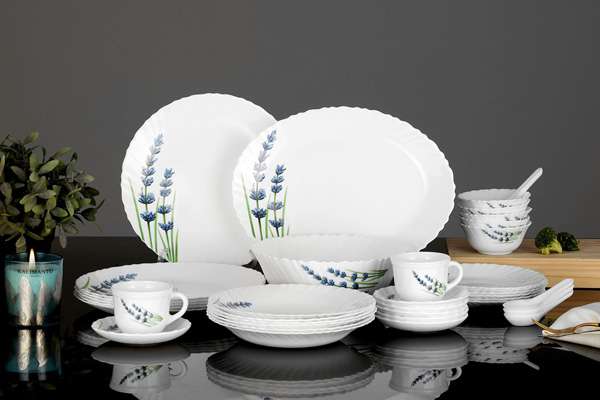The Role of Barium Carbonate in Opalware Production
Barium carbonate is a key raw material in the manufacturing of opalware, valued for its unique properties that significantly enhance the quality and durability of these ceramic products. Below, we explore why barium carbonate is essential in opalware production.
Enhancing Transparency and Gloss
Barium carbonate acts as a clarifying agent during the production process, making the glass more transparent and glossy. This results in opalware with a brighter, more attractive appearance.
Improving Thermal Resistance
This compound increases the resistance of opalware to thermal shock, reducing the risk of cracks or breaks when exposed to sudden temperature changes.
Boosting Mechanical Strength
Including barium carbonate in the mix improves the strength and durability of opalware. The finished products become more resistant to impacts and abrasion, leading to longer-lasting tableware.
Enabling Color Variety
Barium carbonate reacts with various metal oxides to produce a wide range of colors and designs in opalware. It also contributes to the vibrant and diverse glaze finishes that make these ceramics visually appealing.
Additionally, barium carbonate is crucial in porcelain production, where it enhances physical and chemical properties by forming a strong crystalline network within the glaze. This network increases strength, transparency, and heat resistance.
Opalware Manufacturing Process Using Barium Carbonate
- Raw Material Blending: Silica, sodium carbonate, lime, feldspar, and barium carbonate are carefully measured and mixed.
- Melting: The mixture is melted at very high temperatures to form molten glass.
- Shaping: The molten glass is molded into various shapes like plates, bowls, and cups.
- Cooling and Annealing: The shaped products are slowly cooled and then annealed in kilns to relieve internal stresses.
Benefits of Barium Carbonate in Opalware
- High resistance to heat and impact
- Superior transparency and shine
- Wide range of colors and designs
- Lightweight yet durable
- Dishwasher safe
- Chemical resistance
Key Considerations When Purchasing Barium Carbonate
- Purity: High purity ensures fewer impurities and better performance during production.
- Particle Size: Finer particles improve glaze quality and uniformity.
- Impurities: Understanding impurities is vital, as some may limit the effectiveness of barium carbonate in opalware.
- Manufacturer Reputation: Trusted suppliers often guarantee consistent quality.
- Packaging and Storage: Proper packaging protects the material from contamination and moisture.
- Certificate of Analysis: Always request detailed product specifications for assurance.
Factors Influencing Barium Carbonate Pricing
- Purity level: Higher purity commands higher prices.
- Particle size: Finer grades are typically more expensive.
- Quality and brand reputation
- Currency fluctuations (especially for imports)
- Market demand and supply dynamics
- Production costs (energy, labor, materials)
- Applicable taxes and tariffs
Barysun Barium Carbonate: A Step Towards Self-Sufficiency
Our barium carbonate offers competitive quality, often matching or surpassing imported alternatives, with the added advantages of lower costs and reliable supply. Local production supports the national economy, creates jobs, and reduces dependency on imports, contributing strategically to the country’s industrial security and economic growth.


What is the typical particle size distribution and solubility profile of your industrial-grade barium carbonate, and how does it influence glaze stability and color development during high-temperature firing?
Our industrial-grade barium carbonate is carefully processed to meet the performance demands of glaze and frit manufacturers. It contributes to stable melt behavior and enhances opacity and color development, especially in lead-free formulations. Many of our clients appreciate its reliability in reducing glaze defects such as pinholes and crawling during high-temperature firing.
If you’re formulating glazes and looking for consistent results in both appearance and stability, we’d be happy to provide technical specs or a sample.
👉 Contact us to discuss your specific application needs or request detailed product data.”